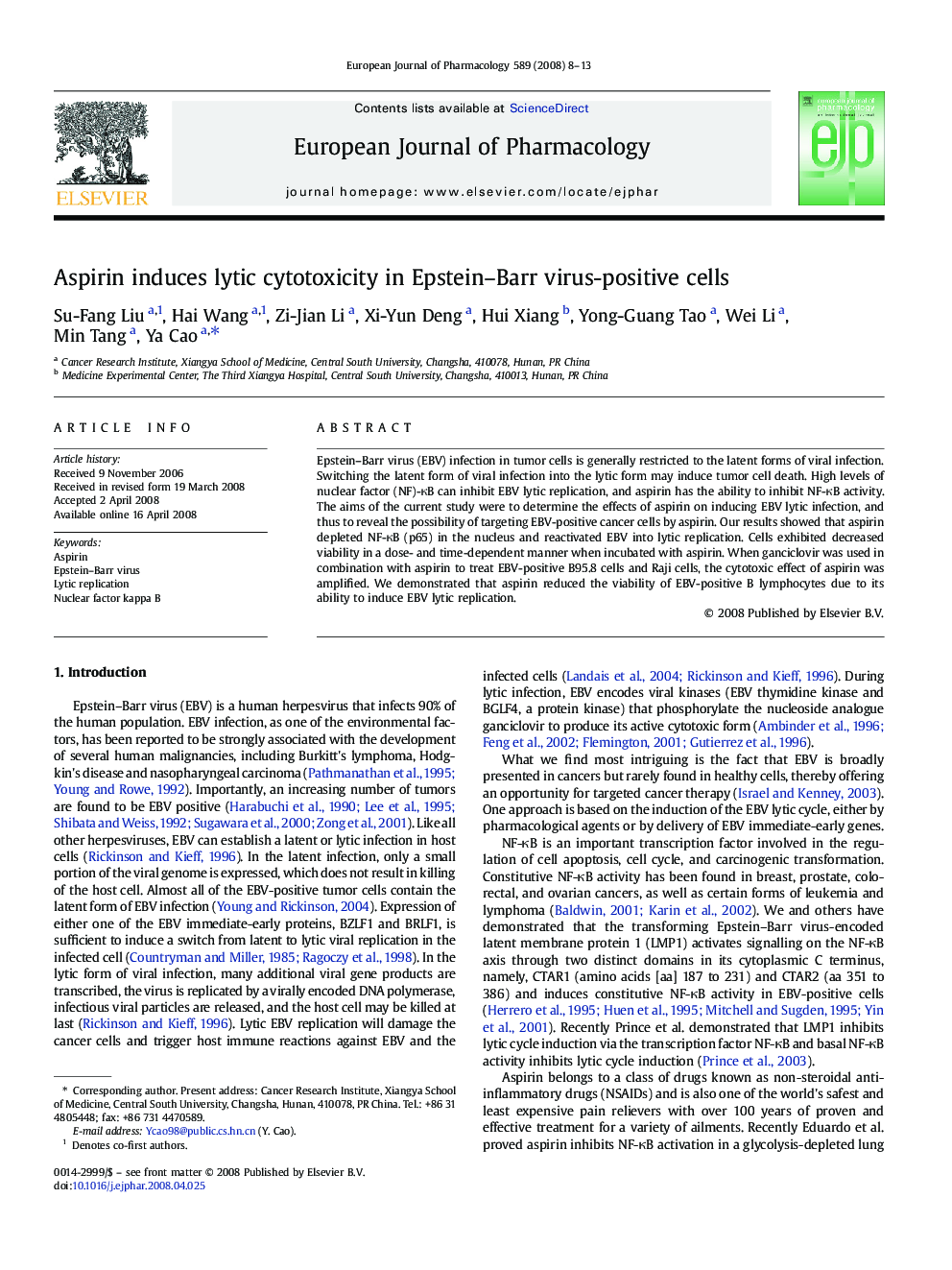| Article ID | Journal | Published Year | Pages | File Type |
|---|---|---|---|---|
| 2535082 | European Journal of Pharmacology | 2008 | 6 Pages |
Epstein–Barr virus (EBV) infection in tumor cells is generally restricted to the latent forms of viral infection. Switching the latent form of viral infection into the lytic form may induce tumor cell death. High levels of nuclear factor (NF)-κB can inhibit EBV lytic replication, and aspirin has the ability to inhibit NF-κB activity. The aims of the current study were to determine the effects of aspirin on inducing EBV lytic infection, and thus to reveal the possibility of targeting EBV-positive cancer cells by aspirin. Our results showed that aspirin depleted NF-κB (p65) in the nucleus and reactivated EBV into lytic replication. Cells exhibited decreased viability in a dose- and time-dependent manner when incubated with aspirin. When ganciclovir was used in combination with aspirin to treat EBV-positive B95.8 cells and Raji cells, the cytotoxic effect of aspirin was amplified. We demonstrated that aspirin reduced the viability of EBV-positive B lymphocytes due to its ability to induce EBV lytic replication.
